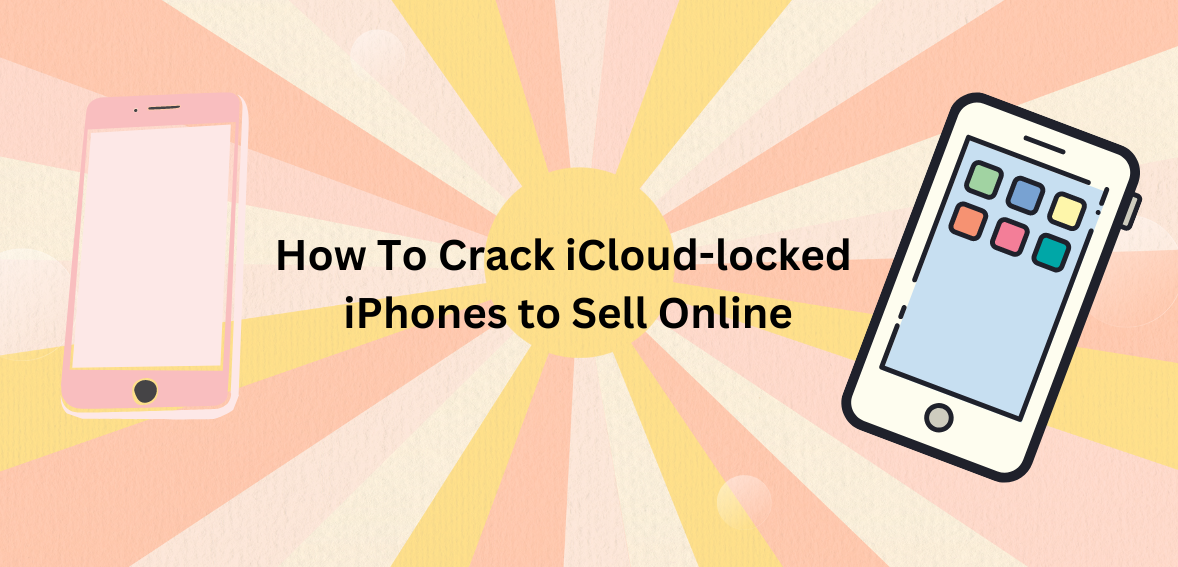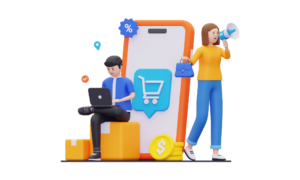Unlocking an iCloud-locked iPhone may seem like a daunting task, but it’s a challenge worth taking on if you’re looking to sell these devices online. In this blog post, we will guide you through the process of cracking an iCloud lock step by step. But before we dive into the technicalities, let’s first understand what exactly iCloud lock is and why it holds such importance in the world of Apple devices.
iCloud lock is a security feature designed by Apple to protect user data in case their device gets lost or stolen. When activated, this feature locks your iPhone to your personal iCloud account, making it practically unusable for anyone else without your login credentials. While this may sound like a great security measure for individuals safeguarding their privacy, it can become quite problematic when trying to sell or buy second-hand iPhones.
So why should you be wary of purchasing iCloud-locked iPhones? Well, there are several risks involved. For starters, you won’t be able to access any features or functions on the device until the iCloud lock is removed. Additionally, there could be hidden issues with the phone that only become apparent once unlocked – issues that can significantly decrease its resale value.
But fear not! We have got you covered with our comprehensive step-by-step guide on how to crack an iCloud-locked iPhone. Whether you plan on selling these devices yourself or just want to unlock one for personal use (with caution!), we’ll walk you through each stage so that nothing catches you off guard.
Stay tuned as we tackle common problems encountered during the unlocking process and provide valuable tips for finding and fixing them along the way. And remember: while cracking an iCloud lock might seem tempting at times, we’ll also shed light on the legal implications associated with such actions.
Ready? Let’s dive into this exciting journey of unlocking and selling iCloud-locked iPhones together!
What is iCloud Lock and Why it’s Important?
What is iCloud Lock and why is it so important? Let’s delve into the world of Apple devices to understand this crucial security feature.
iCloud lock, also known as Activation Lock, is a safeguard designed by Apple to protect your personal data in case your iPhone gets lost or stolen. When activated, it binds your device to your iCloud account, making it nearly impossible for anyone else to access without your login credentials.
Why is this lock such a big deal? Well, imagine if someone could easily access all the information on your phone – contacts, photos, emails, messages – just by getting their hands on it. It would be an absolute nightmare! The iCloud lock adds an extra layer of protection by preventing unauthorized users from accessing and misusing your valuable data.
But its importance goes beyond protecting personal information. For individuals who rely heavily on their iPhones for work-related purposes or store sensitive business data on their devices, the iCloud lock becomes even more critical. Losing a phone with confidential client information or trade secrets can have severe consequences both personally and professionally.
ICloud lock ensures that only you have control over what happens to your iPhone and the precious data within. Its significance lies in preserving privacy and preventing potential misuse or theft of valuable personal and professional information.
The Risks of Buying iCloud-Locked iPhones
When it comes to purchasing a used iPhone, there are certain risks that buyers need to be aware of. One such risk is buying an iCloud-locked iPhone. An iCloud lock essentially means that the device is tied to the previous owner’s Apple ID and cannot be activated without their login credentials.
One obvious risk is that you won’t be able to fully use or access the device if it remains iCloud locked. This includes features like making calls, sending messages, accessing apps, and even connecting to Wi-Fi networks. Essentially, you’ll end up with an expensive paperweight unless you can crack the iCloud lock.
Another significant concern when buying an iCloud-locked iPhone is its potential status as stolen or lost property. In some cases, sellers may knowingly sell these devices in order to offload stolen goods or scam unsuspecting buyers. Purchasing a stolen phone not only supports criminal activity but also puts you at risk of legal consequences if authorities trace the device back to you.
Furthermore, cracking an iCloud lock can involve complex techniques or shady software tools that may compromise your privacy and security. There’s always a chance of downloading malware or unintentionally exposing sensitive information while attempting to unlock the device.
In addition, even if you manage to successfully crack the iCloud lock on an iPhone, there’s no guarantee that it will function properly afterward. There could be underlying hardware issues or other problems associated with a previously locked device which might affect its performance and reliability.
Buying an unlocked iPhone from trusted sources provides peace of mind knowing that legally obtained goods are being purchased without any hidden surprises or potential legal troubles down the line.
Step-by-Step Guide on How to Crack an iCloud-Locked iPhone
Unlocking an iCloud-locked iPhone may seem like a daunting task, but with the right knowledge and tools, it can be done. Here is a step-by-step guide to help you crack that iCloud lock and regain full control over the device.
1. Research and gather information: Start by understanding the different methods of cracking iCloud locks. Look for reliable sources such as online forums or tutorials to learn about potential solutions.
2. Check compatibility: Before attempting any method, ensure that it is compatible with your specific iPhone model and iOS version. Using incompatible methods can lead to further complications.
3. Choose a trusted unlocking tool: There are various software tools available in the market claiming to unlock iCloud-locked iPhones. Take time to research their credibility, read reviews, and choose one that has positive user feedback.
4. Follow instructions carefully: Once you have selected an unlocking tool, carefully follow the step-by-step instructions provided by the software developer or tutorial guide.
5. Provide necessary information: During the unlocking process, you may be required to provide certain details such as IMEI number or device identification codes. Make sure you have this information readily available before starting.
6. Patience is key: Unlocking an iCloud-locked iPhone can take time depending on various factors such as internet speed and system requirements of the unlocking tool being used. Be patient throughout the process and avoid rushing through steps.
Remember that cracking an iCloud lock without proper authorization from Apple may violate terms of service agreements and could potentially result in legal consequences.
Always proceed at your own risk!
Tips for Finding and Fixing Common Issues with iCloud-Locked iPhones
Finding and fixing common issues with iCloud-locked iPhones can be a challenging task. However, with the right tips and tricks, you can navigate through these problems and potentially unlock the device.
It’s important to determine if the iPhone is truly iCloud locked. This can be done by checking for signs such as a constant request for an Apple ID or being unable to access certain features. Once confirmed, you can start troubleshooting.
One of the first things to try is contacting the previous owner. They might have forgotten to remove their iCloud account from the device or may be willing to cooperate in unlocking it. If that doesn’t work, consider using online services that claim to bypass iCloud activation locks – but proceed with caution as some of these services are scams.
Another option is attempting a hard reset on the iPhone. This involves holding down specific buttons until you see the Apple logo appear on screen. While this method doesn’t guarantee success, it has been known to resolve some iCloud lock issues.
If all else fails, consider seeking professional help from an authorized Apple service provider or technician who specializes in unlocking iCloud-locked devices. They have access to advanced tools and knowledge that may increase your chances of success.
Remember though: cracking an iCloud-lock without proper authorization could lead to legal consequences depending on your jurisdiction. Always research local laws before attempting any methods that could violate those regulations.
In conclusion (even though I shouldn’t conclude!), finding and fixing common issues with iCloud-locked iPhones requires patience and perseverance. It’s crucial not only for selling purposes but also from an ethical standpoint since purchasing stolen or locked devices promotes illegal activities within the smartphone market.
Legal Implications of Cracking iCloud-Locked iPhones
When it comes to cracking iCloud-locked iPhones, it’s crucial to understand the potential legal implications involved. While some might see it as a way to make quick money by selling these devices online, there are important factors that need consideration.
First and foremost, it is essential to note that cracking an iCloud lock without proper authorization is illegal in many jurisdictions. This action violates intellectual property rights and can lead to serious consequences if caught.
Law enforcement agencies and Apple take such violations seriously. Engaging in unauthorized access or tampering with security features may result in criminal charges being filed against you. It’s not worth risking your reputation and facing legal penalties for a few extra bucks.
Moreover, buying or selling iCloud-locked iPhones also carries its own set of risks. If you unknowingly purchase a stolen device or one that has been reported as lost or stolen, you could be held accountable for possessing stolen property.
In addition to the potential legal ramifications, cracking an iCloud-locked iPhone can have financial repercussions too. For instance, Apple may refuse service or support for devices that have been tampered with illegally.
It’s always best to abide by the law and explore alternative options instead of resorting to illegal activities when dealing with locked iPhones. By doing so, you protect yourself from unnecessary trouble while still operating within ethical boundaries.
Remember: respect intellectual property rights, follow the law, and stay away from engaging in any activity related to unauthorized access of someone else’s device – even if it seems tempting at first glance!
Alternatives to Cracking iCloud-Locked iPhones
If you’re dealing with an iCloud-locked iPhone and don’t want to go down the route of cracking it, there are a few alternative options worth exploring. While these alternatives may not guarantee a full unlock like cracking would, they can still offer some solutions.
The first alternative is to contact Apple directly. They have the tools and expertise to help in situations like this. Reach out to their customer support or visit an Apple store for assistance. They may require proof of ownership before offering any help, so be prepared with your purchase receipt or other relevant documents.
Another option is to try software unlocking services. These services claim they can remotely unlock iCloud-locked devices using specialized software. However, proceed with caution as many of these services are scams or simply ineffective.
You could also consider selling the device as-is, disclosing its locked status upfront. Some buyers might be interested in purchasing iCloud-locked iPhones for parts or for use on networks that don’t require activation via iCloud.
If you have exhausted all other options and still want to sell the device online but without misleading potential buyers, clearly state that it’s an iCloud-locked phone in your listing. Some individuals or companies specialize in buying such devices and are willing to take them off your hands at a reduced price.
Remember that each option comes with its own set of risks and limitations. It’s essential to research thoroughly and weigh the pros and cons before deciding which path is right for you.
Conclusion
In today’s digital age, iCloud lock has become an essential security feature for iPhones. It protects users’ personal information and prevents unauthorized access to their devices. However, it can also pose challenges when buying or selling used iPhones online.
While there are methods available to crack iCloud-locked iPhones, they come with significant risks and potential legal implications. It is crucial to consider these factors before attempting any unlocking techniques.
If you encounter an iCloud-locked iPhone that you want to sell, it is advisable to explore alternative options first. Contacting the original owner or reaching out to Apple for assistance may provide a more ethical and legal solution.
Cracking iCloud-locked iPhones should be approached cautiously and responsibly. Prioritize the privacy and security of individuals involved while considering the potential consequences of your actions.
By understanding the risks involved in dealing with iCloud-locked devices and exploring alternative solutions, you can make informed decisions when buying or selling used iPhones online. Stay vigilant, stay secure!



























